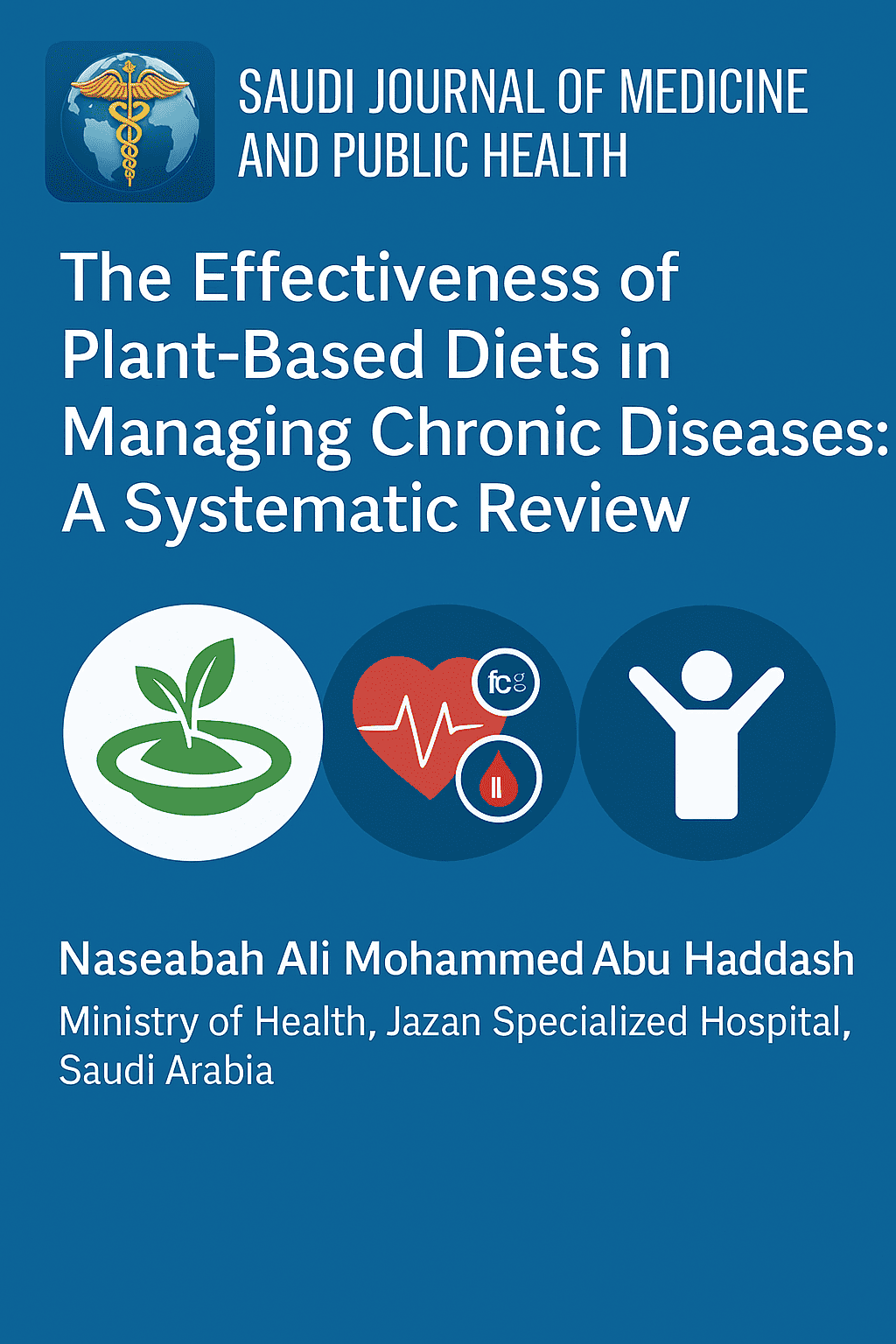Therapeutic Potential of Plant-Based Dietary Interventions in Chronic Disease Remission: Mechanisms, Clinical Evidence, and Practical Implementation
Abstract
Background: Chronic diseases such as type 2 diabetes mellitus (T2DM), cardiovascular disease (CVD), hypertension, obesity, and certain cancers represent a large burden of morbidity and mortality worldwide, and many are affected by lifestyle including diet. Unrestricted plant-based diet (PBD), high in whole plant foods and low or no animal foods, has emerging data related to their association with prevention and reversal of chronic disease, including anti-inflammatory, anti-oxidative, and metabolic impact.
Aim: To systematically review the evidence for PBD association with remission or substantial improvement in chronic disease, including documenting clinical outcomes, quality of life (QoL), cost-effectiveness, and implementation considerations associated with any PBD.
Methods: A literature search was completed from 2000 to 2024 using keywords for plant-based diets, vegetarianism, chronic disease, and other disease-specific keywords. Eligible peer-reviewed studies included adult populations, reported clinical outcomes, QoL, and implementation considerations, with no restrictions on dietary or intervention duration. Study quality was independently assessed with the Cochrane Risk of Bias Tool and Newcastle-Ottawa Scale.
Results: Vegan diets produced beneficial clinical outcomes across a range of conditions, including type 2 diabetes (T2DM), cardiovascular disease (CVD), hypertension, obesity, and cancer progression. They improved HbA1c and LDL cholesterol and led to weight loss while preventing or reducing cancer progression. The only challenges, for example, non-adherence and insufficient nutrients, were found. The estimated annual cost savings for the recovery of T2DM and CVD management is $50-100 billion.
Conclusion: The evidence shows that PBDs can be effective at managing and possibly inducing remission in chronic diseases, and provide benefits in clinical outcomes, quality of life, and healthcare costs. The barriers to adherence, nutritional deficiencies, and scalability will need to be examined further and require education, infrastructural support, and more research to understand how best to maximize implementation.
Full text article
Authors

This work is licensed under a Creative Commons Attribution 4.0 International License.

